- Home
- Robert Rankin
East of Ealing Page 7
East of Ealing Read online
Page 7
The Professor nodded. ‘It is the product of many lifetimes’ work and yet now, with all this behind me, I am still lost for a solution to the matter now closely pressing upon us.’
‘But what is it, Professor? What have you found and what do you yet seek? Tell me how I might aid you, you have but to ask.’
‘What I have here is evidence. But it is evidence of a most unique nature, for it is evidence of a crime which is yet to be committed; the greatest crime of them all. I have my case together and I can predict with some degree of accuracy as to what will occur and when, but I have yet to come up with a solution as to a way that I might prevent it happening.’
‘But what is it?’
‘Armageddon. The Apocalypse,’ said Professor Slocombe. ‘The End of Days. Did you think that I would have gone to all this trouble for anything less?’
Sherlock Holmes shook his head slowly. ‘I suppose not,’ said he
11
Norman’s automaton had finished breaking up the stones and resurfacing the shopkeeper’s backyard. Now he smacked the dust from his duro-flesh palms and returned to the kitchenette to brew up some tea for his living double. Norman watched his approach through the grimy rear window. He was doing very well now, he thought. There were no more signs of violent temperament now that his circuitry had been appropriately readjusted. He would give the creation a couple of days to redecorate the premises then, if all seemed sound, get him back on shop work. Although things had got off to a poor start, Norman was certain that the future looked promising, and that he would soon be able to dedicate all his time to his greatest project yet.
The scientific shopkeeper grinned lop-sidedly and struck up a bit more whistling. He sought about on his shelves for a chocolate bar which was still in date to munch upon. Through the open shop doorway he spied another whistler. Jim Pooley was striding by at a jaunty pace en route to Bob the bookie. Here Jim would lay on one of the most extraordinary and ill-conceived Super-Yankee accumulators ever recorded in the annals of bookmaking history.
Norman gave up his futile search, made a mental observation that when the great day dawned and all his wares were computer-coded he would have no need to bother with such trifles as actually ordering new stock, and repaired to the kitchenette for a cuppa.
Jim Pooley pushed open Bob’s armoured-glass door and entered the betting shop. As is well known, to any follower of the sport of kings, the interior of such establishments vary by but the merest detail, be they based upon some busy thoroughfare in John O’Groats or down a back alley in Penge. The betting shop is always instantly recognizable to be the thing of beauty that it is: the grey, fag-scarred linoleum floor, and the ticker-tape welcome of slip stubs; the heavily-barred counter, twelve-inch black and white tellies; the rarely-scrubbed blackboards, displaying hieroglyphics that even the now legendary Champollion would find himself hard-pressed to decipher.
Jim squinted through the blue fog of Havana cigar smoke towards its source. Behind the portcullis, pulling upon his torpedo, sat Bob the bookie.
‘In for another hiding?’ the millionaire enquired.
Jim smiled and waggled his betting-slip. ‘Today is the day,’ quoth he.
Bob stifled a yawn and rubbed a newly-purchased diamond ring upon the lapel of his smoking-jacket.
The Koh-i-Noor glittered flawlessly in its setting as Jim slid his slip beneath the titanium security bars of the counter fortress. Bob held the crumpled thing at arm’s length and examined it with passing interest. ‘I have a new pocket calculator,’ he told Pooley.
‘Personalized for you by Cartiers of Paris, no doubt,’ said Jim. ‘Wrought in platinum and fashioned into the likeness of a golden calf. Your initials in jade?’
‘Something of the sort.’
‘I have no wish to see it, but should it give you some small pleasure, I suppose I owe it to you. Times are, I see, as ever against you.’
‘It is a hard life.’
‘Oh, is it now? To tell you the truth, spending so much of my time, as I do, in the sensual pleasures of unashamed luxury, I rarely have time to notice.’
‘It is electric,’ Bob continued, ‘solar-powered in fact. It will work for a thousand years without maintenance.’
‘Handy,’ said Jim.
‘But nevertheless useless.’
‘Oh dear, and why might that be?’
‘Well, for all the wondrous ingenuity of its creators, the lads have overlooked one small detail, and have denied it the facility to calculate any sum greater than nine hundred and ninety-nine million, nine hundred and ninety-nine thousand, nine hundred and ninety-nine pounds.’
‘The fools,’ said Jim.
‘My sentiments entirely. Now should your selection,’ he waved Pooley’s betting-slip sadly before him, ‘come up at the predicted odds, I feel that my calculator will find itself many zeros below the mark.’
‘Don’t worry,’ said Pooley sympathetically, ‘I’ll settle for it to the nearest million, and for now. I’ll have just a pound on it please, Bob.’
‘As you wish, and shall you pay the tax?’
‘Oh yes, I have no wish to upset the country’s economy. Such is not fair to the Government.’
‘As you will then.’ Bob pushed Pooley’s slip into the machine, and Jim passed him the exact amount in pennies and halfpennies. ‘I’ll be back around five to settle up,’ said he.
Bob nodded and tinkered with his watch. ‘Video roulette,’ he said. ‘The latest thing from Lateinos andRomiith.’
‘A pox on those two lads,’ said Pooley. ‘And good-day.’
Jim folded his betting-slip into his breast-pocket, left the fog-bound bookie, and strolled off along the Ealing Road. He had not gone but fifty yards when he found himself confronted by a most extraordinary little scene. A group of onlookers was gathered in a tight knot about the pavement doors of the Swan’s cellar. Pooley craned his head above the assembled throng and was more than a little surprised at what he saw.
Somehow, inexplicably jammed into the four-foot opening, was Neville the part-time barman.
‘Someone get me out,’ wailed this man, his voice soaring in pitch and volume above that of the rumbling spectators. ‘By the gods somebody, please!’
Pooley rubbed at his eyes. This was an impossibility surely? Thin man trapped in fat opening; such things could not be reasonably expected to occur. But strange as strange, here they were doing that very thing. Neville spied out Pooley’s face bobbing amongst the sea of others. ‘Jim,’ he shouted. ‘Help me out will you?’
Pooley hastened to oblige. ‘Stand back now, ladies and gents,’ he said. ‘Give the man some air now, please.’
‘On your bike, Pooley,’ said Old Pete, who had a particularly good place near the front. ‘We’re not going to miss any of this.’
‘Be fair,’ Jim pleaded. ‘You can see he’s in a bad way, give the lad a break.’
‘How do you suppose it’s done, then?’ said Old Pete. ‘Mirrors, do you think?’
Pooley shook his head. ‘I’ve really no idea, might it be what they call a shared vision? I’ve read of such things.’
‘Possibly that. When I was in the East, a lad in the regiment took us to see the Indian rope trick. We saw the whole thing. Magician throws up a rope, it hangs in the air, he climbs up then vanishes, then he climbs down, the whole thing.’
‘Really?’
‘Oh yes, well a bloke with us secretly took pictures and when we got them developed, what did they show?’
‘Tell me.’
‘They showed a mendicant standing beside a coil of rope. Every picture the same. Now what lied, the camera’s eye, or our own?’
Neville, whose face had deepened in colour by several shades during the course of this fascinating conversation, let out a great and terrible scream.
‘Keep it down, Neville,’ said Old Pete. ‘Can’t you see we are trying to apply ourselves to the situation.’
‘Oh, so sorry,’ said the bunged-up barman.
&n
bsp; ‘We are doing our best,’ Pooley assured him. ‘It is just, well, the situation has some rather unique qualities, too hasty a decision could result in disaster. ‘
‘Tell you what,’ said Old Pete, ‘I’ll go through the bar and into the cellar; I’ll pull and you push.’
Pete scuttled away through the saloon-bar door.
‘There,’ said Pooley. ‘Help is at hand, do not worry.’
‘I’m running out of breath,’ mumbled the barman. ‘I’ll die here in full public gaze. The humiliation, the shame. What a way to go.’
‘Come on now,’ said Jim, doing his best to usher away the crowd which now spilled out into the Ealing Road. ‘Be off about your business, please.’ He shouted down towards the cellar, ‘Pete, are you there?’ But there was no reply. ‘Now what is he playing at?’ asked Pooley. ‘I’ll slip inside and see if he’s all right.’ Jim slipped into the bar, leaving the mob to close in about the howling barman. He joined Old Pete up at the bar.
‘Took your time, didn’t you?’ said the ancient. ‘Losing your grip then, is it? Here, have one on the house.’ He poured Jim a large whisky from the barman’s reserve stock. ‘Cheers,’ he said.
‘Down the hatch,’ Pooley replied. ‘No offence meant, Neville.’
‘So,’ Old Pete continued, ‘what do you take it to be, publicity stunt do you think?’
Jim shrugged hugely. ‘You’ve got me. I can’t see how it works, but he does appear to be wedged in solid.’
‘Nah, he’s probably up on blocks. No doubt the brewery is planning a Billy Bunter night or some such abomination.’
‘Perish the thought.’ Jim Pooley crossed himself and tossed back his scotch. ‘Any more left in that bottle?’ he asked.
Outside, exciting things were about to happen. Leo Felix, Brentford’s Rastafarian used-car dealer, had been passing by in his tow-truck; seeing the crowd gathered outside the Swan, the free-ale sign had flashed up in his colourful head. Now, he decided, might be a good time to make his peace with Neville, who had but recently barred him, once more, for life. Even as Pete and Pooley chit-chatted in the bar, Leo, dreadlocks a-dangle, was busily engaged in hooking Neville up to the winch on the back of his truck. ‘I and I soon have you back on your feet,’ he assured Neville. The part-time barman seemed strangely reticent about accepting this particular offer of help, and while the crowd applauded and offered encouragement, he shrieked and wriggled and invoked the aid of his pagan gods. The way things were going he felt that he would soon be getting the opportunity to address them face to face.
Leo was by now up in his cab. ‘Jah, Jah Willing,’ he said as he revved the engine and ram-jammed his thumb down on the hoist button. The cheering crowd parted as the hoist took up the slack.
‘Oooooooooh,’ went Neville as the improvised harness tightened beneath his armpits.
‘Quite mild for the time of year,’ said Jim as he poured two more drinks.
‘Fair,’ said Pete. ‘I’ve seen better.’
Young Chips pricked up his ears as outside the barman’s scream rose to a frequency beyond human register. Sickening, bone-crunching sounds were emanating from the barman’s middle regions and the cement about the cellar door’s metal frame was splitting and shivering. The crowd drew back in sudden alarm; this was no laughing matter. ‘Switch your winch off, Leo,’ shouted somebody.
‘You’ll pull him in half.’ Leo thumbed the button. He had been meaning to have it fixed for some time. The thing popped out from the dashboard and fell into his upturned palm. ‘Haile Selassie!’ said Leo Felix.
‘ ,’ went Neville the part-time barman.
‘Back your truck up then for God’s sake,’ shouted another somebody, ‘we’ll try and get the cable off him.’
Leo hastened into the driving seat and stuck the customized Bedford into reverse. Gear cogs ground together adding further screams of distress to those already being loudly voiced.
He had been meaning to get the reverse fixed for some time.
With an almighty clunk the gear found its housing, and lodged into it as firmly as a barman in a beer cellar. Leo clawed at the gear-stick but it would not shift by an inch. His knackered tow-truck, sick to the worn tyre treads with its constant bad treatment, had chosen this of all times to exact revenge upon its Caribbean tormentor. Tearing his keys from the dash, Leo Felix leapt pale-faced from the cab. The malevolent tow-truck rolled relentlessly backwards, bound for the crowd and the struggling barman.
As the unstoppable vehicle gathered speed, those free to do so hastily took to their heels. Neville stared up, his good eye starting from its socket. The acrid smell of exhaust fumes filled his brain, and a rear number-plate which read NEM1515 began to engulf his world.
It looked very much like strawberry jam time for Neville the part-time barman. The truck’s engine roared like some beast loosed from the bottomless pit, and ground upon its hellish course. With one final despairing gasp Neville passed from consciousness, which as it happened was quite a shame because he missed the very best bit.
As the crowd burst asunder in a screaming panic-torn explosion, a heroic figure leapt into the fray. He plunged through the mass of fleeing humankind and took up a stance between the comatose barman and the roaring instrument of doom. The feet of this titan were firmly rooted upon the pavement and his face was a cold mask of determination. His eyes shone with a strange inner light. With a single sudden lunge forward, he grasped the tailgate of the wheel-screeching vehicle and stopped it dead in its tracks. The tyres squealed upon the pavement, raising black clouds of tread. With superhuman effort Neville’s deliverer dragged it up from the ground. The engine whined into overdrive and exhaust smoke enveloped him in a great monoxide cloud of death. Struggling beneath the weight of the possessed vehicle, he bore it aloft, and held it high above his head. The truck rocked and shuddered, howling like a banshee, but in a moment he had done with it.
Brentford’s St George cast down the mechanical dragon, bursting out its tyres, scrambling its axles, and driving its engine to ruination upon the cold stones of the pavement. As the smoke cleared, small knots of the cowardly crowd stared back in wonder. The hero calmly knotted the slackened hoist cable about his hand and tore it from its mountings. He turned slowly towards Neville and, freeing him from his hangman’s harness, stooped and carefully drew him up to pavement level, where he laid him gently to rest.
Before the crowd could arouse itself from its slack-jawed wonderment, engulf the hero, and raise him shoulder-high, Norman silently turned away from the scene of his glory and strode back to his corner shop.
12
The ambulance bells had long died away into memory when three men came strolling along the Ealing Road. One was bowed and ancient, walking with the aid of a slim ebony cane, a mane of snow-white hair trailing out behind him. Another was tall and gaunt with a great hawk of a nose, clad in an oddly Victorian tweed suit. As to the last, he was Irish and wanted his thirty quid.
As these three approached the Swan, Sherlock Holmes suddenly laid a gentle palm upon the Professor’s chest and said, ‘Now what do you make of that!’
Professor Slocombe shook his old head. ‘Cellar doors ajar, a barman somewhat remiss in his duties?’
‘Oh, no,’ said Holmes. ‘Much more. And what here?’
The elder perused Leo’s defunct tow-truck parked at the kerb, its back axle supported by two piles of red flettons. ‘Unusual bravado upon the part of the local criminal fraternity?’ he suggested.
‘I think not.’ Holmes drew out his magnifying glass and as Omally watched him, with one eye forever straying towards the saloon-bar door, he dropped to all fours and perused the pavement.
‘How many entrances to this cellar?’ asked Holmes, looking up.
‘Just that,’ said Omally. ‘And a door behind the bar.’
‘I see.’ Holmes examined the blackened skid marks. ‘Interesting,’ said he.
‘Riveting,’ said John. ‘Might we step inside now, please?’
; Holmes rose to his feet and patted dust from his trouser knees. ‘I think so,’ he said.
Omally led the way and the three men entered the bar. Pooley, who with Old Pete’s aid had long ago finished the bottle of Neville’s reserve, rose unsteadily to greet them. Omally eyed him with great suspicion. ‘Have you seen Soap this morning?’ he asked.
Pooley shook his head. ‘You’ve missed all the excitement.’
‘Obviously. Whose round is it?’
‘I’ll get these,’ said Professor Slocombe. ‘Holmes?’
‘A small sherry,’ the detective replied. ‘And a small word with Mr Pooley here.’
‘Oh yes?’ asked the half-drunken Jim.
‘The fellow with the beard serving behind the bar is not, I believe, the regular barman.’
Pooley squinted disgustedly towards Croughton the pot-bellied potman, who was now up to his elbows in froth behind the beer engines. ‘Certainly not,’ said he.
‘And the regular barman, a gentleman of some standing in this community, he is not one who would leave the bar during a lunchtime session without a very good reason?’
‘Not Neville.’
‘So I would be right then in assuming that the fat gentleman who was until recently stuck fast in the cellar opening outside was this very Neville?’
‘You what?’ said John Omally. ‘What happened here, Jim?’
‘I’ll do my best to explain,’ said Pooley, tumbling backwards from his bar stool. ‘But for now I think I need to go to the toilet.’
It was quite some time before Pooley re-emerged looking a little more sober. During the period of his absence Holmes had gleaned all the necessary information from other sources, finished his sherry, and had taken himself off to places elsewhere. Jim relocated his behind upon the bar stool. Looking up at the battered Guinness clock he asked, ‘Anybody know what won the one forty-five?’
‘Ahriman Boy,’ said Old Pete. ‘I get Free Radio Brentford on my deaf aid. The commentator was having a coronary by the sound of it.’

 The Japanese Devil Fish Girl and Other Unnatural Attractions
The Japanese Devil Fish Girl and Other Unnatural Attractions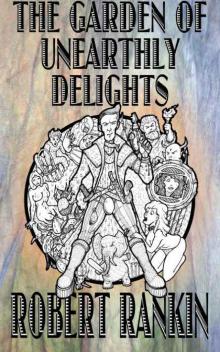 The Garden of Unearthly Delights
The Garden of Unearthly Delights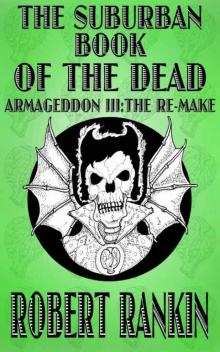 The Suburban Book of the Dead: Armageddon III: The Remake
The Suburban Book of the Dead: Armageddon III: The Remake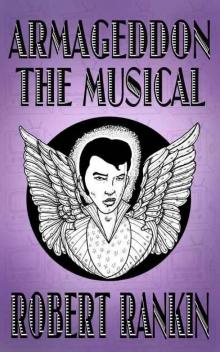 Armageddon_The Musical (Armageddon Trilogy Book 1)
Armageddon_The Musical (Armageddon Trilogy Book 1)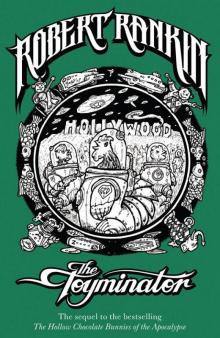 The Toyminator
The Toyminator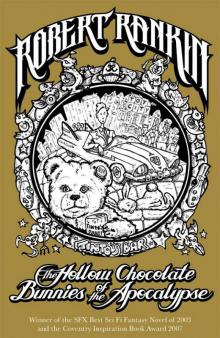 The Hollow Chocolate Bunnies of the Apocalypse
The Hollow Chocolate Bunnies of the Apocalypse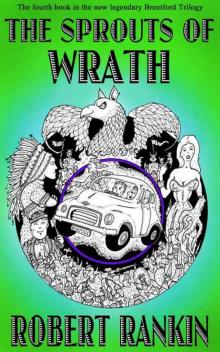 The Sprouts of Wrath
The Sprouts of Wrath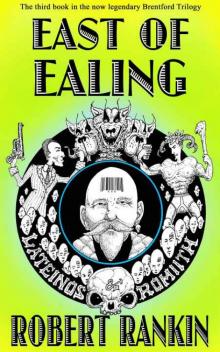 East of Ealing
East of Ealing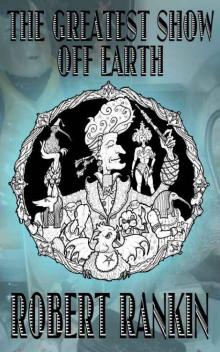 The Greatest Show Off Earth
The Greatest Show Off Earth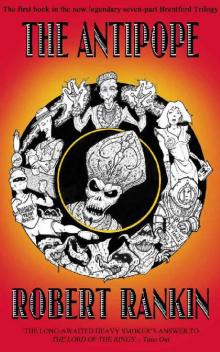 The Antipope
The Antipope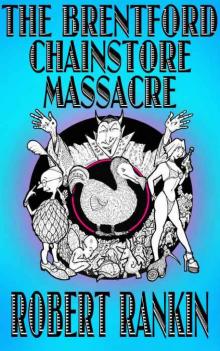 The Brentford Chainstore Massacre
The Brentford Chainstore Massacre They Came and Ate Us_The B-Movie (Armageddon Trilogy 2)
They Came and Ate Us_The B-Movie (Armageddon Trilogy 2)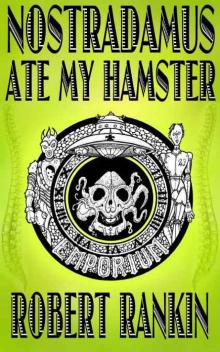 Nostradamus Ate My Hamster
Nostradamus Ate My Hamster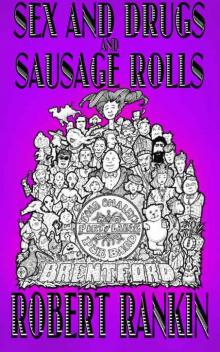 Sex and Drugs and Sausage Rolls
Sex and Drugs and Sausage Rolls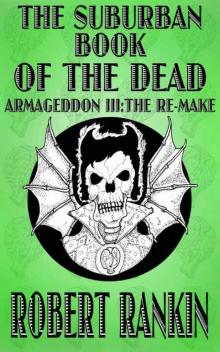 The Suburban Book of the Dead_The Remake (Armageddon Trilogy 3)
The Suburban Book of the Dead_The Remake (Armageddon Trilogy 3)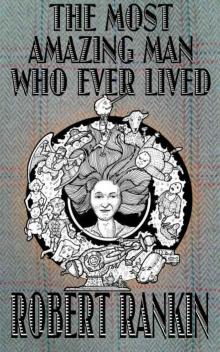 The Most Amazing Man Who Ever Lived
The Most Amazing Man Who Ever Lived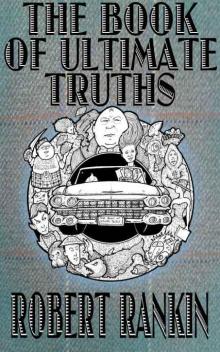 The Book of Ultimate Truths
The Book of Ultimate Truths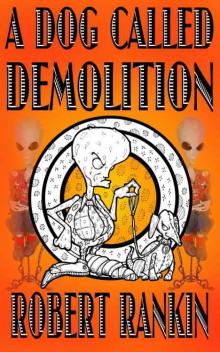 A Dog Called Demolition
A Dog Called Demolition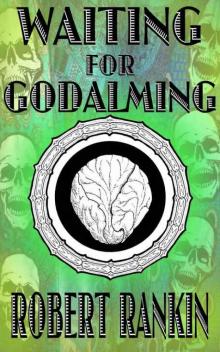 Waiting for Godalming
Waiting for Godalming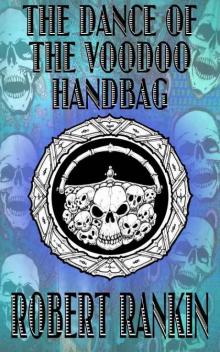 The Dance of the Voodoo Handbag
The Dance of the Voodoo Handbag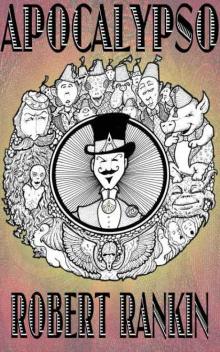 Apocalypso
Apocalypso They Came and Ate Us: Armageddon II: The B-Movie
They Came and Ate Us: Armageddon II: The B-Movie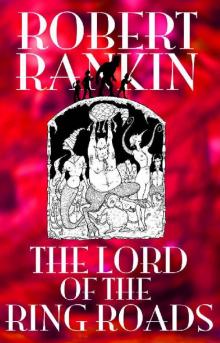 The Lord of the Ring Roads
The Lord of the Ring Roads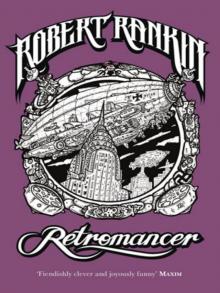 Retromancer
Retromancer The Fandom of the Operator
The Fandom of the Operator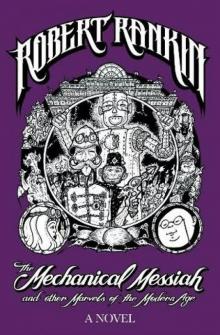 The Mechanical Messiah and Other Marvels of the Modern Age
The Mechanical Messiah and Other Marvels of the Modern Age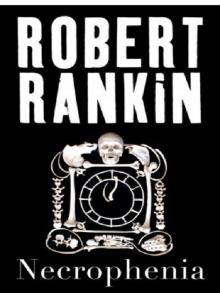 Necrophenia
Necrophenia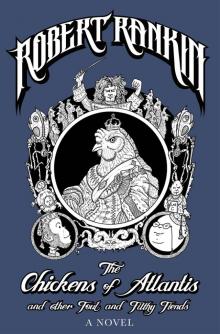 The Chickens of Atlantis and Other Foul and Filthy Fiends
The Chickens of Atlantis and Other Foul and Filthy Fiends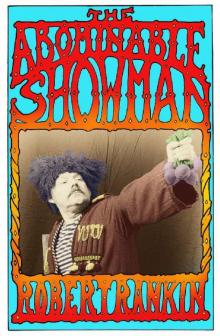 The Abominable Showman
The Abominable Showman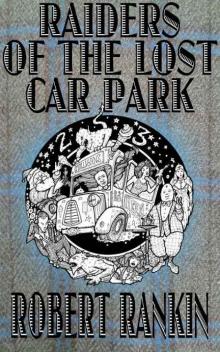 Raiders of the Lost Carpark
Raiders of the Lost Carpark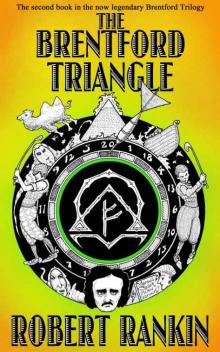 The Brentford Triangle
The Brentford Triangle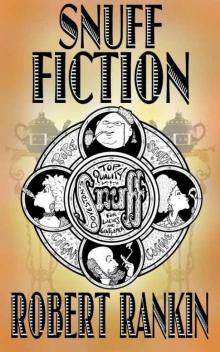 Snuff Fiction
Snuff Fiction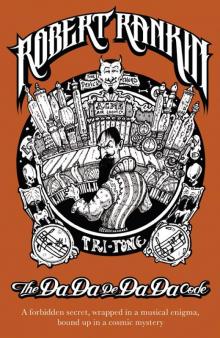 The Da-Da-De-Da-Da Code
The Da-Da-De-Da-Da Code Web Site Story
Web Site Story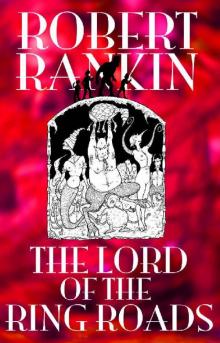 The Lord of the Ring Roads (The Final Brentford Trilogy Book 1)
The Lord of the Ring Roads (The Final Brentford Trilogy Book 1)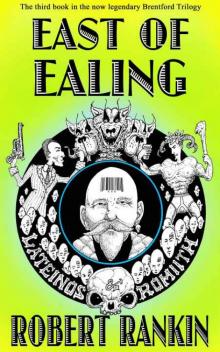 East of Ealing (The Brentford Trilogy Book 3)
East of Ealing (The Brentford Trilogy Book 3)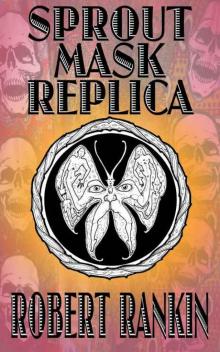 Sprout Mask Replica (Completely Barking Mad Trilogy Book 1)
Sprout Mask Replica (Completely Barking Mad Trilogy Book 1)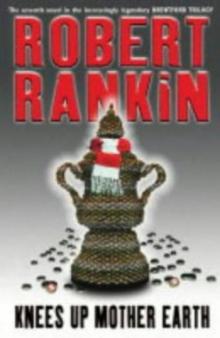 Knees Up Mother Earth bs-7
Knees Up Mother Earth bs-7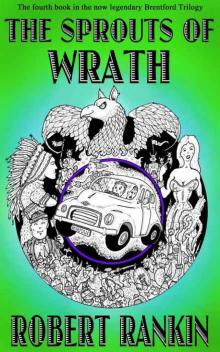 The Sprouts of Wrath (The Brentford Trilogy Book 4)
The Sprouts of Wrath (The Brentford Trilogy Book 4)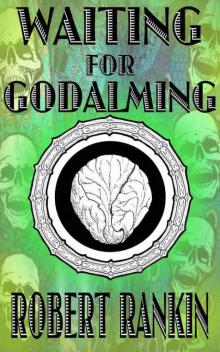 Waiting for Godalming (Completely Barking Mad Trilogy Book 3)
Waiting for Godalming (Completely Barking Mad Trilogy Book 3)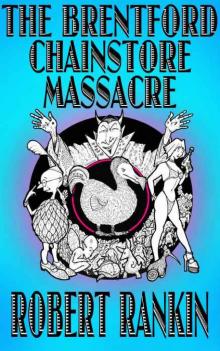 The Brentford Chainstore Massacre (The Brentford Trilogy Book 5)
The Brentford Chainstore Massacre (The Brentford Trilogy Book 5)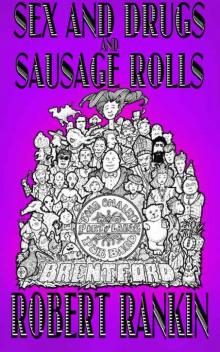 Sex and Drugs and Sausage Rolls (The Brentford Trilogy Book 6)
Sex and Drugs and Sausage Rolls (The Brentford Trilogy Book 6)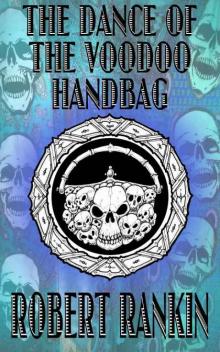 The Dance of the Voodoo Handbag (Completely Barking Mad Trilogy Book 2)
The Dance of the Voodoo Handbag (Completely Barking Mad Trilogy Book 2)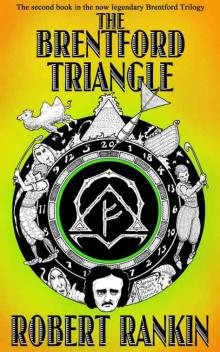 The Brentford Triangle (The Brentford Trilogy Book 2)
The Brentford Triangle (The Brentford Trilogy Book 2)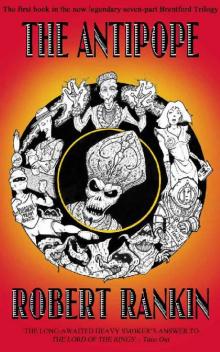 The Antipope (The Brentford Trilogy Book 1)
The Antipope (The Brentford Trilogy Book 1)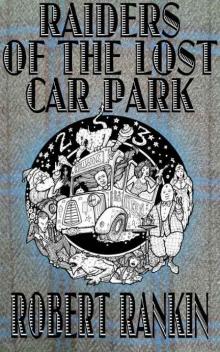 Raiders of the Lost Car Park (The Cornelius Murphy Trilogy Book 2)
Raiders of the Lost Car Park (The Cornelius Murphy Trilogy Book 2) They Came and Ate Us - Armageddon II_The B-Movie (Armageddon Trilogy Book 2)
They Came and Ate Us - Armageddon II_The B-Movie (Armageddon Trilogy Book 2)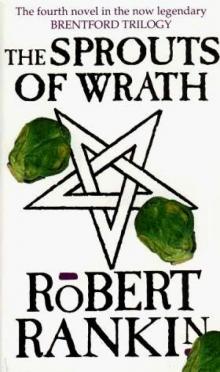 The Sprouts of Wrath bs-4
The Sprouts of Wrath bs-4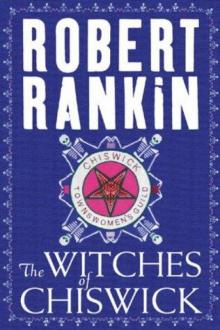 The Witches of Chiswick
The Witches of Chiswick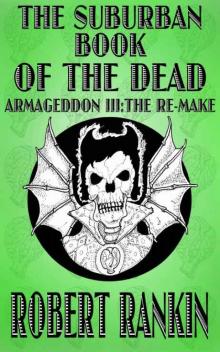 The Suburban Book of the Dead - Armageddon III: The Remake (Armageddon Trilogy 3)
The Suburban Book of the Dead - Armageddon III: The Remake (Armageddon Trilogy 3)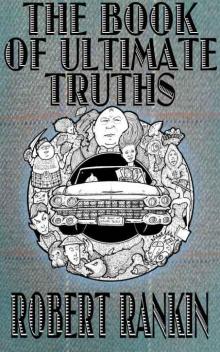 The Book of Ultimate Truths (The Cornelius Murphy Trilogy 1)
The Book of Ultimate Truths (The Cornelius Murphy Trilogy 1)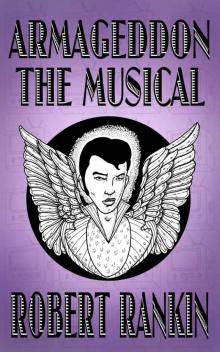 Armageddon: The Musical (Armageddon Trilogy)
Armageddon: The Musical (Armageddon Trilogy)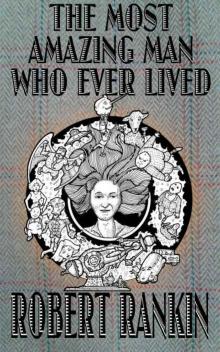 The Most Amazing Man Who Ever Lived (The Cornelius Murphy Trilogy Book 3)
The Most Amazing Man Who Ever Lived (The Cornelius Murphy Trilogy Book 3)